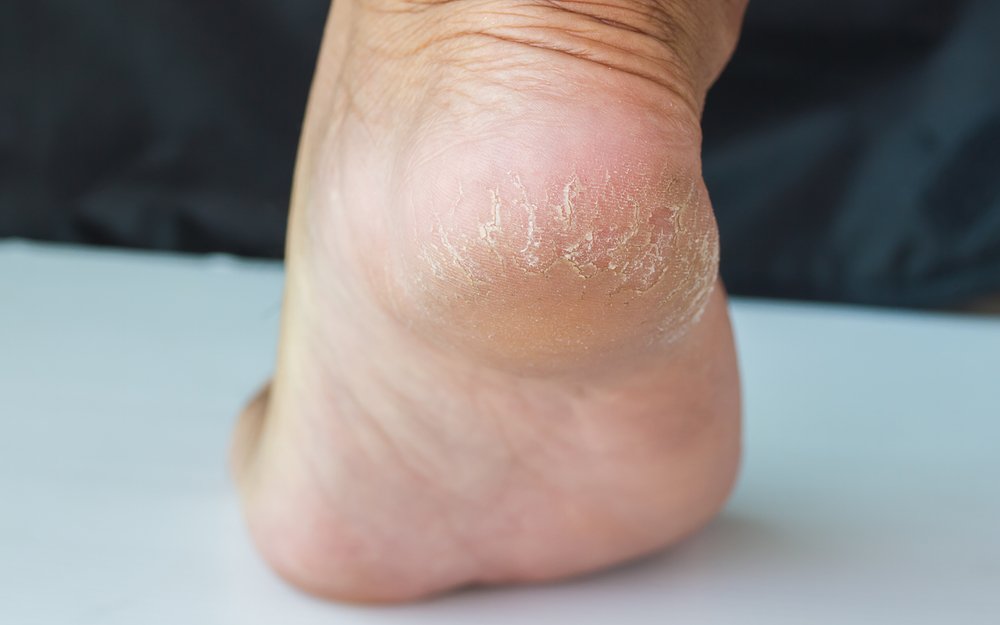 Cracked Heels – What You Need To Know
Cracked Heels – What You Need To Know
Is it hard for you to wear strappy heels or simple sandals to show off your good looking feet without getting worried because of dry cracked heels? A crack in heel and dry feet are more common during summer because the feet are exposed most of the time. Foot care should be easily incorporated into one’s daily routine for the prevention of cracked heels. Care for your feet the same way you care for your face and your body and enjoy healthier, happier feet always.
Causes of cracked heels
There is more than one cause of heel cracks, but it is possible to have more than one cause to affect you. If you are looking for some expert advice on cracked heels, you may want to seek help from a podiatrist. Feel free to contact our office to make an appointment with our podiatrist. Our foot and ankle specialist, Dr. Ejodamen Shobowale can provide you with the care you need to keep you pain-free and on your feet
- Lack of moisture; the skin underneath the feet is usually dry, chapped and rough since fat cells are not present underneath the feet skin and have less elasticity.
- Deficiency or lack of zinc, minerals, and vitamins affects the health of the heel.
- III. Your feet are under pressure to carry the weight of your body in shoes, walking and standing for long hours.
- Aging causes the skin to lose its thickness and elasticity, leaving it more susceptible to cracking.
- Being overweight can potentially cause cracked heels because of the pressure on the fat pad under the heel causes it to expand sideways.
- Exposing footwear with an open back allows the fat to expand and increase the possibility of cracking. If you have to wear the exposing footwear take extra care of your feet.
- VII. Maintain hygiene to avoid fungal infections.
- VIII. Spending long periods in the water or damp areas easily cause cracking because water drains the skin of natural oils leaving it dry and rough.
- Wearing poorly-fitting shoes will likely cause a change in walking posture and cause poor standing postures.
- It is believed that callus skin is sometimes genetically passed on.
- Medical causes such as diabetes and high blood sugar which results in poor circulation leading to dry skin.
- XII. Pregnancy due to hormonal changes.
Simple cracked heel treatments
Cracked heels happen because of the formation of callus, lack of proper exfoliation and hydration.
Cracked heel treatments include:
Exfoliation
Calloused heels happen due to daily wear and tear and exfoliation is the safest way to remove them. Use a foot scrub; pumice stone and foot file to exfoliate every two weeks, but if the calluses are moderate increase exfoliation to once or twice a week. Do not completely get rid of them because they have a function to protect the feet, do not expose your feet to harm.
Moisturize
The feet do not have sebaceous glands, so they are less moisturized unlike other parts of the body. Look for moisturizer products with macadamia, urea, and Shea butter oils because they penetrate the skin. For already cracked feet products with Aloe Vera are suitable because it speeds up the healing process.
Inserts and socks
Wear custom shoe inserts because they distribute your weight evenly. Also, consider silicon heel cups which keep the heel moisturized and prevents it from expanding. Use clinically-tested padded socks.
Cracked heels take time to heal even after showing signs of improvement following initial treatment. Seek medical attention to prevent serious complications from underlying medical conditions. If you have any questions, please feel free to contact our office located in Cypress, TX. Our Cypress office can handle all of your cracked heel issues. We will provide you with the latest diagnostic and treatment methods for all foot-related issues.